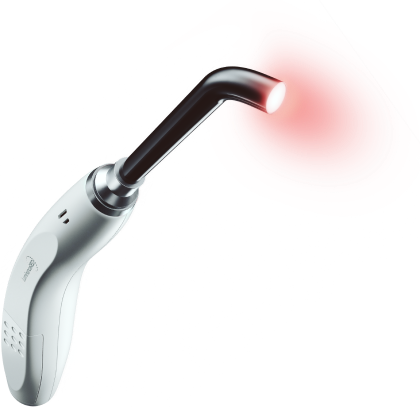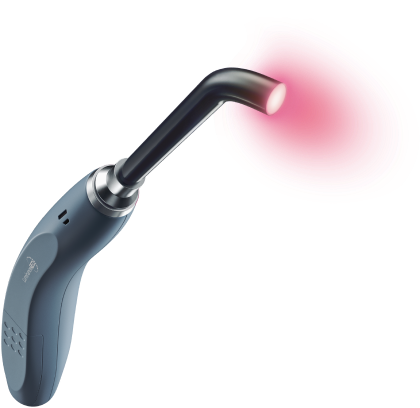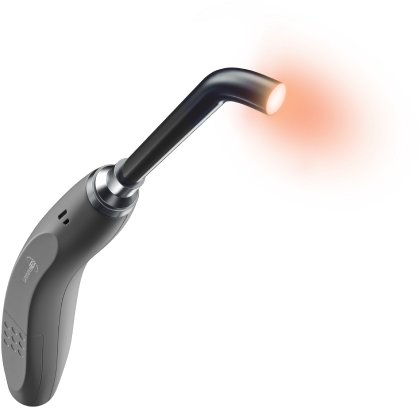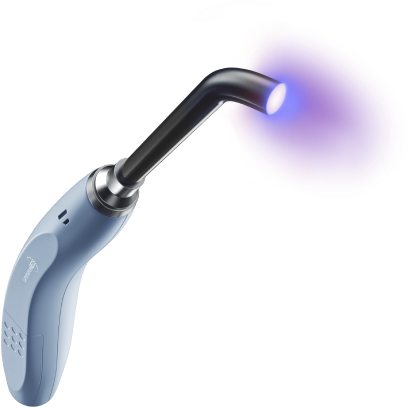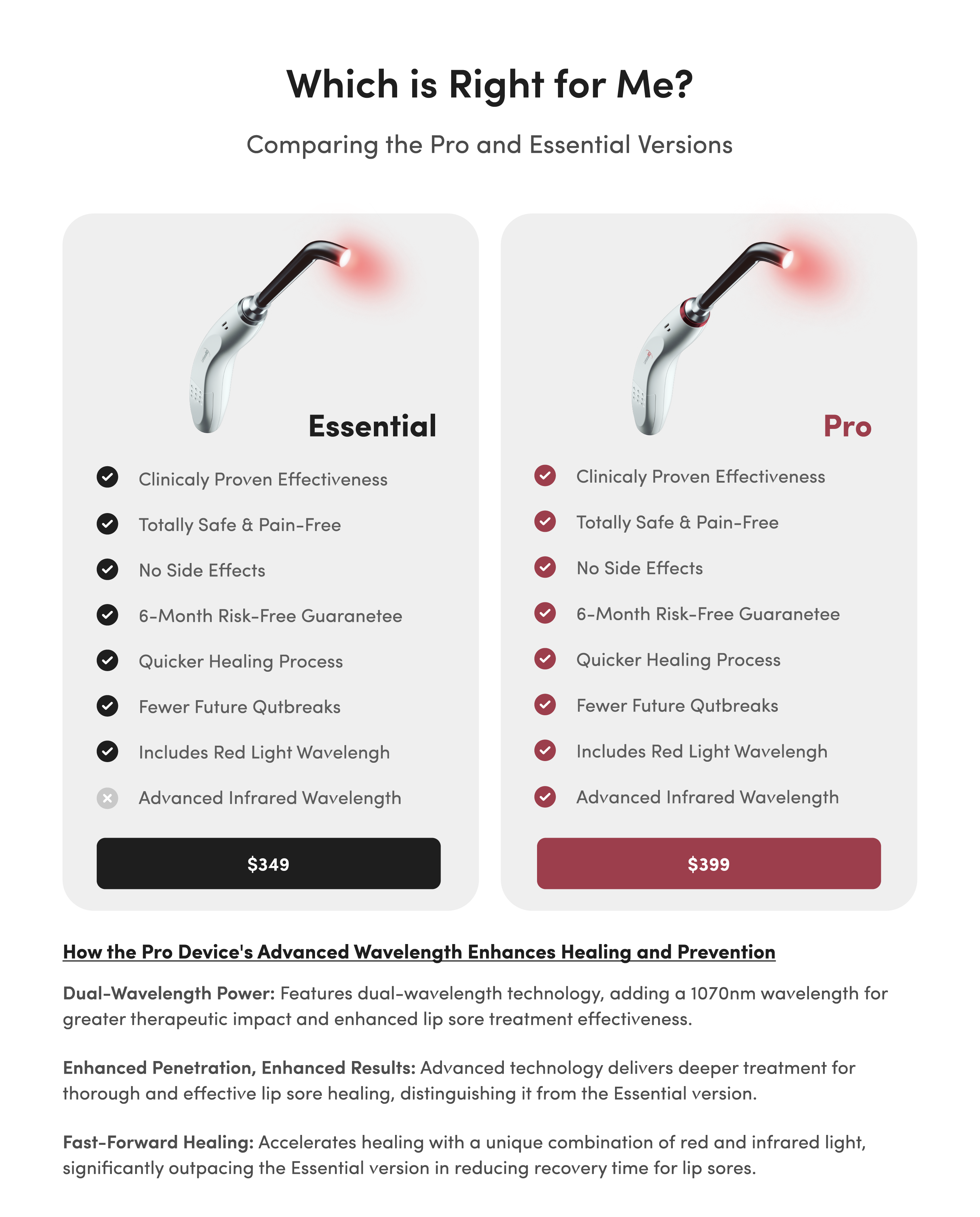Why You Keep Getting Canker Sores & What To Do About It

Do you often suffer from annoying canker sores inside your mouth? These painful white sores are a common medical issue that affects about 20% of the global population.
Most people only experience canker sores about three to four times per year, but chronic canker sores appear more frequently and cause much more pain. If you keep getting canker sores, it’s important to understand the underlying causes of your outbreaks, as well as how to bolster your body’s ability to heal.
What Are Canker Sores?
Canker sores, also referred to as aphthous ulcers or aphthous stomatitis, are shallow lesions that can develop anywhere on the soft tissue inside your mouth. The white spot is usually surrounded by a pink or red border.
Most of these white sores are one to four millimeters in size, but some aggressive sores can exceed five millimeters.
Cankers are often confused with cold sores. Cold sores, however, come from a viral infection with the herpes simplex virus, transmitted from person to person through physical touch. There is no cure for cold sores — only ways to manage outbreaks, which occur near but outside the mouth.
Unlike cold sores, canker sores are not contagious. They’re not transmitted from one person to another by any means, and they only occur inside the mouth. However, like cold sores, cankers cause quite a bit of discomfort and pain and can make routine activities like eating, talking, and sleeping more difficult.
Even with treatment, canker sores typically take one to two weeks to heal. Some cankers, like complex canker sores, can take three weeks or longer.
What Are Chronic Canker Sores?
If you keep getting canker sores, you may be suffering from a chronic condition called recurrent aphthous stomatitis.
Generally, a chronic disease is a condition that lasts more than one year and requires ongoing medical attention. Chronic diseases may disrupt your quality of life and cause significant emotional distress, along with debilitating physical symptoms.
You’ve probably heard of chronic diseases like diabetes and heart disease, but not all chronic diseases are life-threatening. Some, like canker sores, are more like an irritating pest.
Before mouth sores are considered “chronic,” they have to occur repeatedly over a long period of time and make your day-to-day functions challenging and unpleasant.
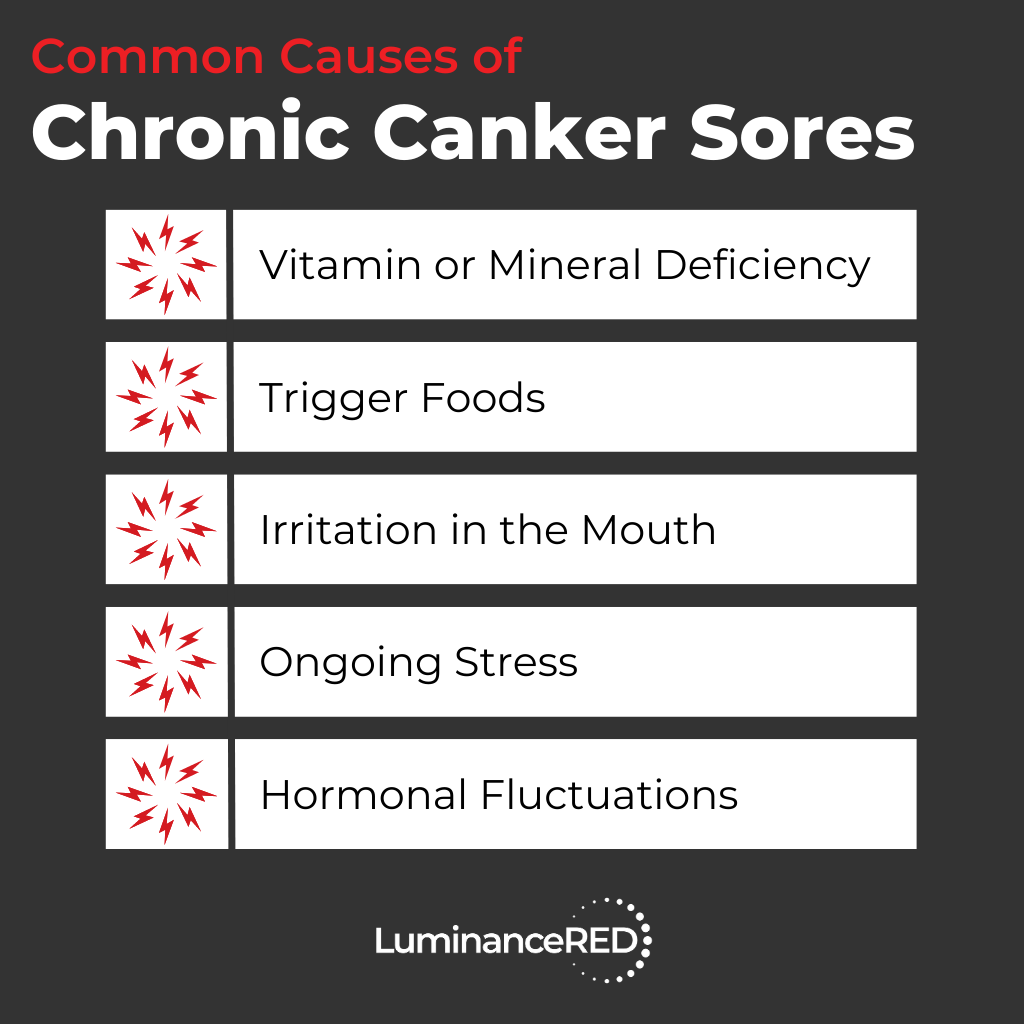
Common Causes of Chronic Canker Sores
If canker sores develop in your mouth more than a few times a year, an underlying trigger could be responsible for your outbreaks. By investigating your habits for some of the leading causes of canker sores, you might be able to identify and eliminate your particular trigger(s).
Any of the following factors could contribute to repeated canker sore outbreaks:
Vitamin or Mineral Deficiency
You might keep getting canker sores because you’re suffering from a vitamin deficiency, such as a deficiency of folic acid.
Folic acid helps your body to create new cells, and chronic mouth lesions may be a sign you need more folic acid in your diet. A deficiency in the minerals calcium, zinc, or iron may also trigger painful mouth sores.
Your doctor can order a simple blood test to ensure you’re getting enough of these and other essential vitamins and minerals. If you have any deficiencies, dietary changes may be in order, or you can take supplements.
Trigger Foods
If you have a food allergy, consuming the item you’re allergic to can lead to distressing symptoms, including canker sores. Some food allergies can be subtle. You may not even realize your diet is the reason you keep getting canker sores if you aren’t aware of your food allergy.
Some types of foods can cause cankers even if you’re not allergic to them, since they can injure the delicate tissues in your mouth. This includes lemons, oranges, pineapples, and other citrus fruits or high-acid foods, as well as abrasive foods with hard or rough edges, such as pretzels, chips, or toast.
Overly salty or spicy items can make existing mouth ulcers worse.
Irritation in the Mouth
Even if you’re careful not to eat acidic fruits or abrasive foods, there are other ways to injure your mouth and cause canker sores. The following can cause enough irritation to the insides of your cheeks and lips, your gums, or your tongue to result in an ulcer:
- Vigorous brushing
- Excessive flossing
- Using toothpicks
- Using dirty dental appliances
- Wearing sharp braces
Additionally, your teeth alone can accidentally cause injuries that lead to painful sores. Biting your lip, cheek, or tongue when chewing or talking also sets the stage for cankers to develop.
If you experience these kind of oral injuries often, they could be the reason you keep getting canker sores.
Ongoing Stress
We all know stress manifests in many ways. Extensive anecdotal evidence suggests that stress can cause canker sores, but clinical research also suggests a high correlation between canker sores and anxiety, depression, and psychological stress.
A weakened immune system is a serious risk factor for canker sores. Since stress weakens the immune system, your body has fewer defenses to fight off the causes of mouth sores and also heals more slowly.
Experts theorize that people experiencing stress may indulge in behaviors that trigger canker sores, such as biting their lip and cheeks or eating acidic foods, further contributing to the problem.
Hormonal Fluctuations
A fluctuation in hormones, even a normal fluctuation such as your menstrual cycle or a pregnancy, can lead to all sorts of symptoms, including canker sores. For example, an increase in the hormones progesterone and estrogen may cause your gums to swell and become more sensitive, creating the ideal environment for mouth lesions to form.
If you keep getting canker sores with every menstrual cycle, your regular doctor can test your hormone levels to make sure everything is functioning normally.
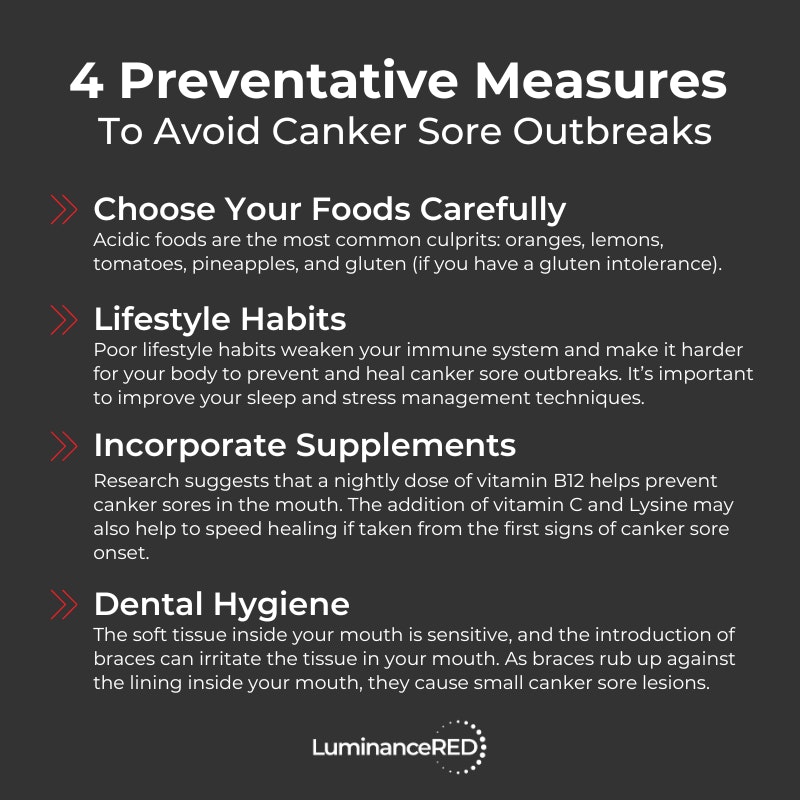
Avoiding Future Outbreaks
The only thing better than a fast-healing canker sore is a canker sore that never develops at all! If you keep getting canker sores, you can try to avoid future outbreaks by applying the following tips:
Choose Your Foods Carefully
Stay away from known canker sore triggers, especially if you’ve identified a certain food that irritates your mouth. These foods are the most common culprits:
- Oranges
- Lemons
- Tomatoes
- Pineapples
- Gluten (if you have a gluten intolerance)
- Coffee
Some foods, such as honey, coconut oil, and apple cider vinegar, can provide temporary relief from painful cankers.
Make Meaningful Lifestyle Changes
Certain lifestyle habits can weaken your immune system and make it harder for your body to prevent and heal canker sores, including those related to sleep and stress. If you’re wondering why you keep getting canker sores, try improving your sleep and incorporating stress management techniques into your routine.
You can stop fatigue from zapping your immune system and making you vulnerable to canker sores with these tips:
- Create a soothing sleep environment.
- Reduce technology and blue light before bedtime.
- Develop a consistent evening routine to wind down.
- Get regular exercise during the day.
The following stress management techniques can also help you cope with canker sore-causing anxiety:
- Mindful breathing
- Changing your surroundings
- Volunteering or helping others
- Delegating small tasks
- Talking to a professional
Practice Good Dental Hygiene
The soft tissues inside your mouth are sensitive, so it’s important to protect them from trauma and irritation. Brush and floss gently to avoid causing irritation, and do both regularly to keep sugar and acid from accumulating and causing inflammation.
Though oral hygiene products are crucial for maintaining a clean mouth, use caution with those containing the foaming agent sodium lauryl sulfate. According to some studies and anecdotal evidence, sodium lauryl sulfate may increase your risk of developing canker sores, especially if you’re already susceptible to these irritating mouth ulcers.
The introduction of dental appliances like braces can also irritate your oral tissues. As these appliances rub up against the lining of your mouth, they often create small lesions that can turn into larger ulcers. Prevent this issue by using dental wax to shield your cheeks and gums from braces and other dental appliances.
Signs You Need to See a Doctor
Mouth ulcers can be a sign that your body is in distress.
If you’ve made positive lifestyle changes but your canker sores still recur frequently, it’s time to speak with a doctor. Chronic, unresolved canker sores sometimes indicate a more serious underlying condition, such as an autoimmune disease or a vitamin deficiency.
Examples of autoimmune diseases linked to chronic canker sores include:
- Lupus
- Behçet’s disease
- Inflammatory bowel diseases (Crohn’s disease, ulcerative colitis, celiac disease)
- AIDS
Your doctor can evaluate your health in order to identify or rule out autoimmune diseases or vitamin deficiencies. If one of these underlying problems is the culprit, the right treatment may reduce the frequency of your canker sore outbreaks.
Are Chronic Canker Sores a Sign of Cancer?
Canker sores are rarely a sign of cancer. Mouth cancer is one of the few examples with oral ulcers as a symptom. Many cancer treatments, however, can cause painful mouth sores.
If you have canker sores that don’t heal or that make it difficult to eat and drink, visit a doctor or dentist to discuss your concerns. It’s best to rule out any underlying health conditions promptly.

A Natural Treatment Option
Whether you keep getting canker sores continually or only occasionally notice a mouth ulcer, there’s an effective way to minimize your pain and accelerate the healing process — light therapy.
Light therapy is a cutting-edge, research-backed alternative to traditional therapies used for canker sores. A handheld device, like the Luminance RED, projects a soothing, high-powered light to reduce pain and expedite your lesion’s healing.
Since light therapy is a natural treatment option with few to no side effects, you have nothing to lose by giving it a try for your mouth sores!









